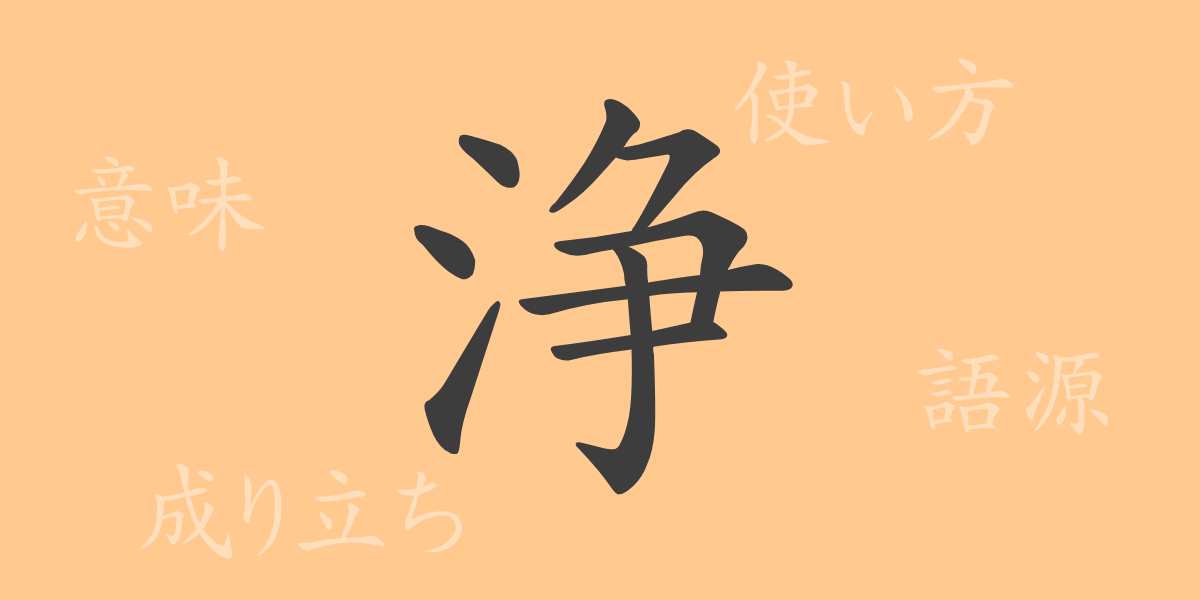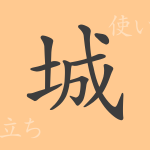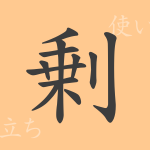In Japanese culture, kanji characters embody more than just letters; each holds its own unique history, meaning, and beauty. Today, let’s delve into the kanji “浄” (じょう), commonly used in everyday Japanese. This article will explore the origins, meanings, applications, pronunciations, and radicals of “浄,” and illuminate its enchanting aspects.
Origins of 浄(じょう)
The kanji “浄” evolved from ancient Chinese characters, initially representing water washing away impurities, combining the radicals for water “氵” (さんずい) and cleansing “争”. This character traditionally symbolized purification, portraying the physical act of cleaning with water. Over time, “浄” has come to express not only physical cleanliness but also spiritual purity, and it is similarly revered in Japan.
Meaning and Usage of 浄(じょう)
“浄” signifies purification and cleansing, referring to both physical cleanliness and spiritual purity. In religious contexts, it is often used to describe the purification of the mind on the path to enlightenment. Commonly, it appears in everyday contexts related to clean water, such as in terms for water purification or septic systems.
Readings, Stroke Count, and Radical of 浄(じょう)
The kanji “浄” adds depth to Japanese expressions through its form and meanings:
- Readings: On’yomi (音読み) “ジョウ”; Kun’yomi (訓読み) “きよ.める”, “きよ.い”
- Stroke Count: “浄” consists of 11 strokes.
- Radical: Its radical is “氵” (さんずい), related to water.
Phrases and Proverbs Involving 浄(じょう) and Their Meanings
Phrases and idioms containing “浄” reflect its intrinsic meanings. For instance, “浄土” (じょうど) refers to the Pure Land in Buddhism, while “浄化” (じょうか) means to remove physical or spiritual impurities. “浄財” (じょうざい) denotes assets used for charitable purposes, and the phrase “心を浄める” (こころをきよめる) translates to cleansing one’s spirit.
Conclusion on 浄(じょう)
The kanji “浄” beautifully represents concepts of cleanliness and purity that are often overlooked in our daily lives. Its form reminds us of flowing water, while its meanings extend from the tangible to the spiritual. In Japanese language and culture, “浄” plays a role far beyond a mere character, symbolizing the state of purity we aspire to achieve daily.

























